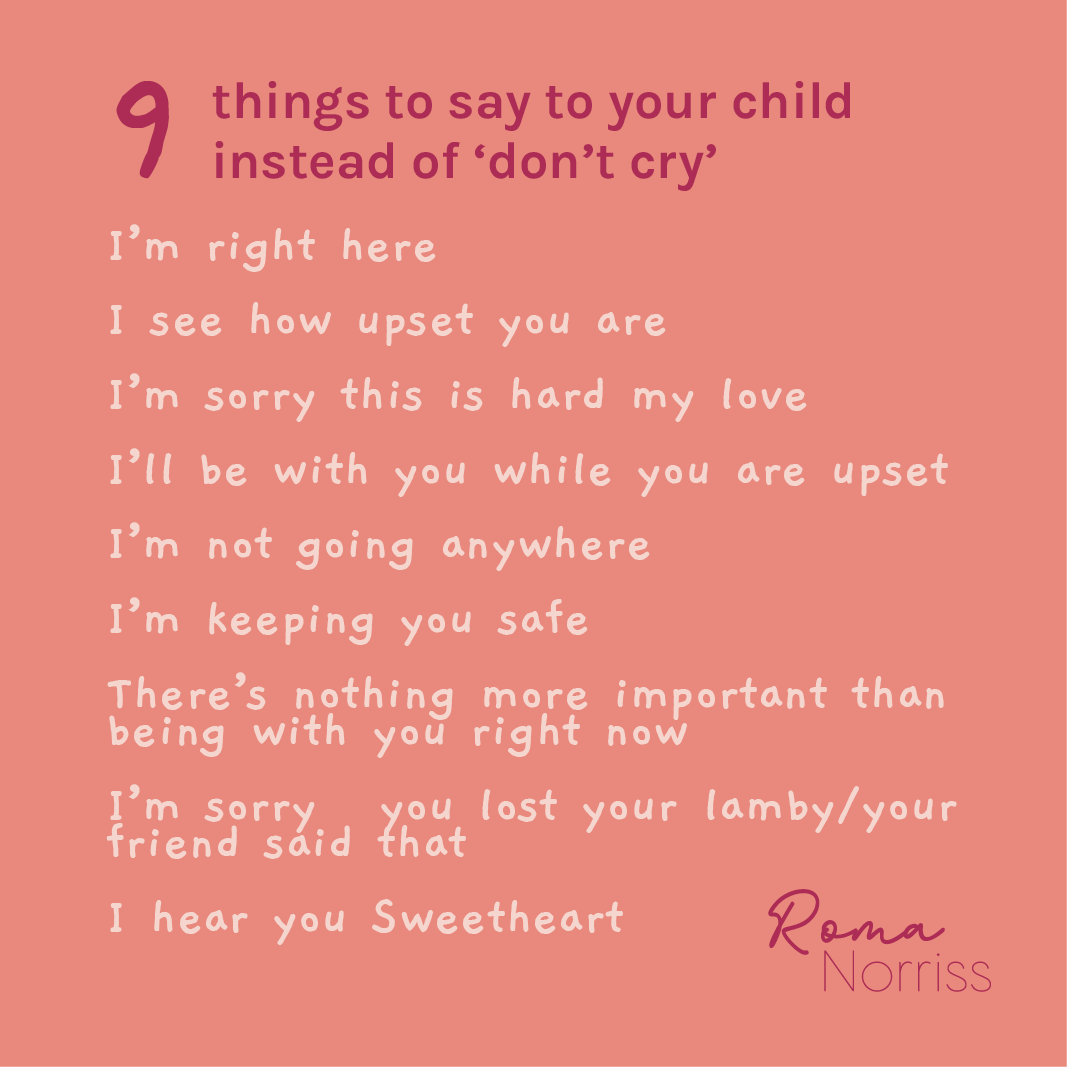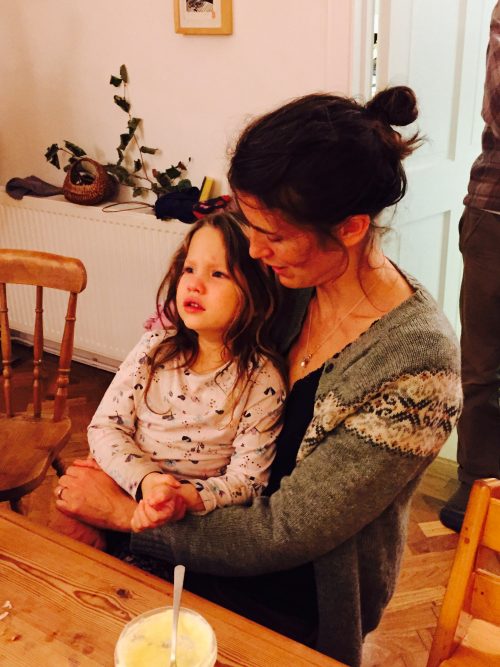What if every time your child cries or tantrums, they are actually doing something highly worthwhile? We don’t always appreciate it when our children begin to cry, but what they are actually doing is making use of the body’s innate recovery system. When we get hurt, physically or emotionally, instead of storing it all up in our bodies as tension, we can make use of crying, laughter, raging or trembling. This is how the body processes and releases feelings. Most of us don’t do this often, having being told “Don’t cry” since we were small, but our children still have their recovery system intact.
The best news is that all of our children’s difficult or ‘off track’ behaviour is driven by emotion and when they get to use your good, warm attention to dump out these feelings, you get your angel back. By actively encouraging our children to cry when they need to, they not only get to shed hurt feelings, they end up feeling more connected to us as well. The way we listen can either shut feelings down, or help children to feel what they are feeling more fully. Here are things you can say to listen well.
General reassuring phrases:
1. I’m right here
2. I see how upset you are
3. I’m sorry this is hard, Love
4. I’ll be with you while you are upset
5. I’m not going anywhere
6. You are safe
7. There’s nothing more important than being with you right now
8. I’m sorry… you lost your lamby/your friend said that/you dropped your ice cream
9. I hear you Sweetheart
Drawing attention repeatedly back to the facts that are driving the upset:
10. You really wanted…that toy/some ice cream/daddy to stay home/to go to the park
11. That…dog/kid/ride/the way I shouted scared you
12. Let’s have another look at your hurt…knee/finger/toe
Holding a limit around the situation (and listening to the protests):
13. I can’t let you…go to that party/hit her/have that treat/play with my glasses
14. I need you to…put your shoes on/finish your homework/get in the car now
Reminding them of the hopeful perspective on the situation (and listening to their hopeless response):
15. You’ll get chocolate again soon
16. I know you’ll figure this all out
17. Mummy is coming back later
18. I’m sure you can still have a good time
19. You’ll do just fine with the tshirt we have
20. It won’t be like this forever
Try to avoid:
Labelling feelings (“I see you are angry”)
Distracting them from feelings (“Shall we go and see what Daddy’s doing?”)
Fixing things (“I know you want ice cream, let’s go to the shop”)
Reasoning (“Well, you did have ice cream yesterday”)
Making their feelings wrong through scolding/shaming/shushing (“What’s that awful noise you are making?”)
Rewards or punishments including threats/bribes/time out (“If you don’t stop that we’ll go home”)
For more info check out:
http://www.handinhandparenting.org/article/what-to-say-during-staylistening/


Leave a Reply